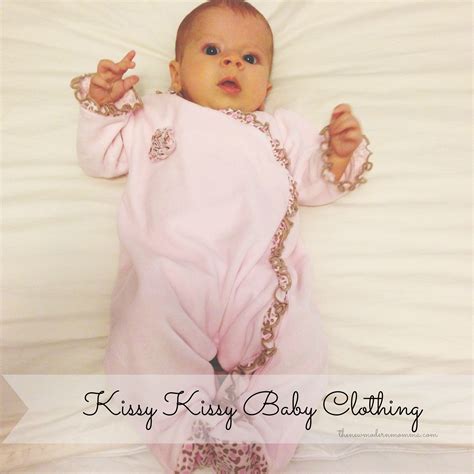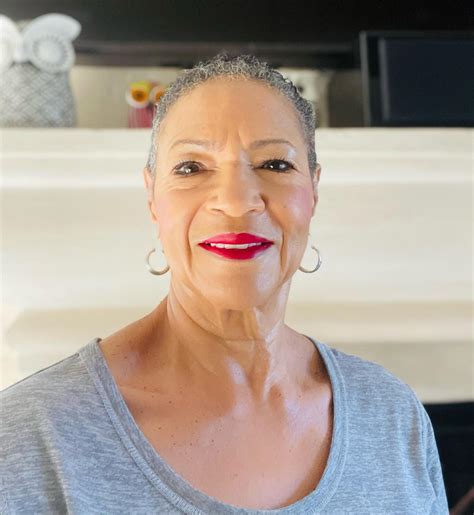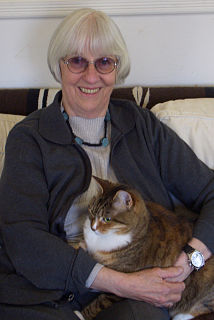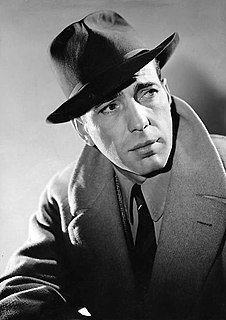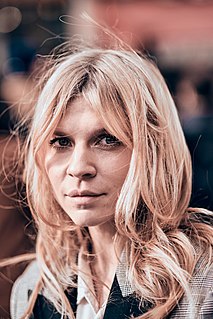Top 565 Libraries Quotes & Sayings - Page 10
Explore popular Libraries quotes.
Last updated on December 22, 2024.
I have all my tricks to unplugging. Sometimes I just close my eyes and I breathe a couple of times, even if I'm in the middle of a conversation. It centers me. Dancing also helps me to unplug, so does writing music. I really enjoy going to Central Park and Upstate New York, when I really want to unplug from the city. Going to the library is great, too. There's just a nice equality about libraries, there's everyone from kids to senior citizens to students, it's a nice environment. I grab whatever book I feel attracted to and then I just sit there and read it for a little while.
I am a librarian. I discovered me in the library. I went to find me in the library. Before I fell in love with libraries, I was just a six-year-old boy. The library fueled all of my curiosities, from dinosaurs to ancient Egypt. When I graduated from high school in 1938, I began going to the library three nights a week. I did this every week for almost ten years and finally, in 1947, around the time I got married, I figured I was done. So I graduated from the library when I was twenty-seven. I discovered that the library is the real school.
While on the subject of burning books, I want to congratulate librarians, not famous for their physical strength, who, all over this country, have staunchly resisted anti-democratic bullies who have tried to remove certain books from their shelves, and destroyed records rather than have to reveal to thought police the names of persons who have checked out those titles. So the America I loved still exists, if not in the White House, the Supreme Court, the Senate, the House of Representatives, or the media. The America I loved still exists at the front desks of our public libraries.
I find it weird that people who claim to speak for the prisoners basically want to keep them in cages all the time - and then they'll fight for better prison libraries or whatever. It's like they're missing the big picture. If I were in prison, of course I would prefer to be outside doing physical labour. It's not physical labour but prison life that kills a person. It's so bad inside that the outside jobs are often sought after. So, yeah, call them work crews and let them do it. At the same time the retributive side can feel the cons are being punished.
But perhaps more important, as someone wishing to make a comment or two about contemporary life and values, I don't have to dig through libraries or travel to exotic lands to arrive at a view of our modern situation refracted through the lens of the preindustrial world, or the uncommercialized, unfranchised, perhaps unsanitized-and therefore supposedly more "authentic"-perspective ofthe Third World. Very simply, this is because that "other" world, as alien as if separated by centuries in time, is the one from which I came
He is no true reader who has not experienced the reproachful fascination of the great shelves of unread books, of the libraries at night of which Borges is the fabulist. He is no reader who has not heard, in his inward ear, the call of the hundreds of thousands, of the millions of volumes which stand in the stacks of the British Library asking to be read. For there is in each book a gamble against oblivion, a wager against silence, which can be won only when the book is opened again (but in contrast to man, the book can wait centuries for the hazard of resurrection.)
The city as a center where, any day in any year, there may be a fresh encounter with a new talent, a keen mind or a gifted specialist-this is essential to the life of a country. To play this role in our lives a city must have a soul-a university, a great art or music school, a cathedral or a great mosque or temple, a great laboratory or scientific center, as well as the libraries and museums and galleries that bring past and present together. A city must be a place where groups of women and men are seeking and developing the highest things they know.
In tight economic times, with libraries sliding farther and farther down the list of priorities, we risk the loss of their ideals, intelligence, and knowledge, not to mention their commitment to access for all—librarians consider free access to information the foundation of democracy, and they’re right. Librarians are essential players in the information revolution because they level that field. They enable those without money or education to read and learn the same things as the billionaire and the Ph.D…In tough times, a librarian is a terrible thing to waste.
When I get nervous, I go to the library and hang around. The libraries are filled with people who are nervous. You can blend in with them there. You're bound to see someone more nervous than you are in a library. Sometimes the librarians themselves are more nervous than you are. I'll probably be a librarian for that reason. Then if I'm nervous on the job, it won't show. I'll just stamp books and look things up for people and run back and forth to the staff room sneaking smokes until I get hold of myself. A library is a great place to hid.
There is only one way to read, which is to browse in libraries and bookshops, picking up books that attract you, reading only those, dropping them when they bore you, skipping the parts that drag-and never, never reading anything because you feel you ought, or because it is part of a trend or a movement. Remember that the book which bores you when you are twenty or thirty will open doors for you when you are forty or fifty-and vise versa. Don’t read a book out of its right time for you.
We honor ambition, we reward greed, we celebrate materialism, we worship acquisitiveness, we commercialize art, we cherish success and then we bark at the young about the gentle arts of the spirit. The kids know that if we really valued learning, we would pay our teachers what we pay our lawyers and stockbrokers. If we valued art, we would not measure it by its capacity to produce profits. If we regarded literature as important, we would remove it from the celebrity sweepstakes and spend a little money on our libraries.
Many flagship state universities have wonderful digital libraries that are accessed by people around the world. In future, if not current, budget crises, trustees, board members, and administrators may wonder why these state institutions - with an articulated primary clientele of students, faculty, and staff members and a secondary clientele of all citizens of the state - should be spending resources on a digital library that is used by many people beyond the primary and secondary service populations.
Making money isn't the main point of business. Money is a by-product.... A new product has been found, something of use to the world. A new industry moves into an undeveloped area. Factories go up, machines go in and you're in business. It's coincidental that people who've never seen a dime now have a dollar and barefooted kids wear shoes and have their faces washed. What's wrong with an urge that gives people libraries, hospitals, baseball diamonds and movies on a Saturday night?
How can we accept a situation in which there are no longer orchestras, choruses, libraries or art classes to nourish our children? We need more support for the arts, not less -- particularly to make this rich world available to young people whose vision is choked by a stark reality. How many children, who have no other outlet in their lives for their grief, have found solace in an instrument to play or a canvas to paint on? When you take into consideration the development of the human heart, soul and imagination, don't the arts take on just as much importance as math or science?
Record stores are the hippest libraries. In these tired ole days of homogenized entertainment, where so much of the art of our society is culminated, dumbed-down and mass produced, there is a shining jewel in the rise of the indy record stores. Going to a record shop for me is like a little treasure hunt no one can take you on but yourself. It's fun to look around and see the other shoppers too...totally entrenched in their own adventure, anticipating the reward of heart wrenching, soul filling, joy making music that might just be a bin or a flip away.
Growing up, my parents managed to show me the importance of reading without cramming it down my throat. A difficult task, I'm sure. It breaks my heart to think that there are kids out there, ready to have their imaginations lit on fire, excited and wanting to read, and facing naked shelves in their school or local libraries. Rather than complain or wait till the system stops failing our nation's children this is a matter I feel we must take into our own hands. There are children, right now, waiting-wanting to read. What shall we tell them>
The words are strung together, with their own special grammar-the laws of quantum theory-to form sentences, which are molecules. Soon we have books, entire libraries, made out of molecular "sentences." The universe is like a library in which the words are atoms. Just look at what has been written with these hundred words! Our own bodies are books in that library, specified by the organization of molecules-but the universe and literature are organizations of identical, interchangeable objects; they are information systems.
The books of the great scientists are gathering dust on the shelves of learned libraries. And rightly so. The scientist addresses an infinitesimal audience of fellow composers. His message is not devoid of universality but its universality is disembodied and anonymous. While the artist's communication is linked forever with its original form, that of the scientist is modified, amplified, fused with the ideas and results of others and melts into the stream of knowledge and ideas which forms our culture. The scientist has in common with the artist only this: that he can find no better retreat from the world than his work and also no stronger link with the world than his work.
Authors and publishers want fair compensation and a means of protecting content through digital rights management. Vendors and technology companies want new markets for e-book reading devices and other hardware. End-users most of all want a wide range and generous amount of high-quality content for free or at reasonable costs. Like end-users, libraries want quality, quantity, economy, and variety as well as flexible business models.
Out of the closets and into the museums, libraries, architectural monuments, concert halls, bookstores, recording studios and film studios of the world. Everything belongs to the inspired and dedicated thief…. Words, colors, light, sounds, stone, wood, bronze belong to the living artist. They belong to anyone who can use them. Loot the Louvre! A bas l’originalité, the sterile and assertive ego that imprisons us as it creates. Vive le vol-pure, shameless, total. We are not responsible. Steal anything in sight.
Paris, hours in the café, a certain spirit of rebellion, one side a bit too stubborn, the sea, the true, in Bretagne, the walking in Provence, the taste, the passion for literature, the libraries, the beautiful editions, remaking the world in a set of hours around a table and a bottle of wine. Talking without really saying nothing, just for the pleasure of talking. The museums, the theatres, the elegance, the delicacy, the heritage of the Illustration, a humanistic philosophy. The balance we got between a nordic rigor and a latin savoir-vivre, the insolence and the freedom.
She was brilliant and joyous and she believed- probably correctly- that libraries contain the answers to all things, to everything, and that if you can't find the information you seek in the library, then such information probably doesn't exist in this or any parallel universe now or ever to be known. She was thoughtful and kind and she always believed the best of everybody. She was, above all else, a master librarian and she knew where to find any book on any subject in the shortest possible time. And she was wonderfully unhinged.
One time, the Library of Congress was giving books to local libraries around the country on Islam. The library of a guy named Walter Jones, who's a member of Congress from North Carolina, got some books and resource materials, and he got up in the press and said he didn't want any Muslim books in the library. And the people said, "Wait a minute, that's kind of anti-Muslim." He said, "Oh no, Keith Ellison is a friend of mine." And I said, "You know what? We are friends, but you're wrong about this.
Access to knowledge is the superb, the supreme act of truly great civilizations. Of all the institutions that purport to do this, free libraries stand virtually alone in accomplishing this mission. No committee decides who may enter, no crisis of body or spirit must accompany the entrant. No tuition is charged, no oath sworn, no visa demanded. Of the monuments humans build for themselves, very few say - touch me, use me, my hush is not indifference, my space is not barrier. If I inspire awe, it is because I am in awe of you and the possibilities that dwell in you.
When I use a name or place, I want to leave the reader open to the waterfall of determinacy that it may provoke. And I don't know, but I must mention the name Borges. I try to mention it in every one of my works. It's a mark, a stamp, a sort of homage to Argentinidad. But it's an homage that works through pat phrases, those stock images that populate his work: the night, labyrinths, libraries. That is, I don't want simply to pay homage to Borges, but rather the contrary: to recall his commonplaces.
